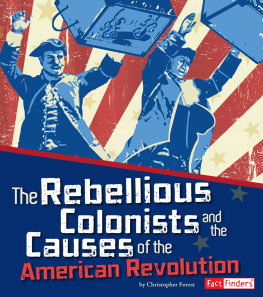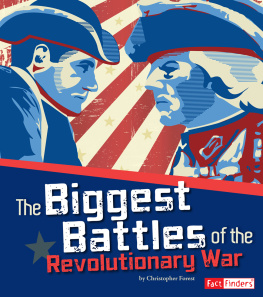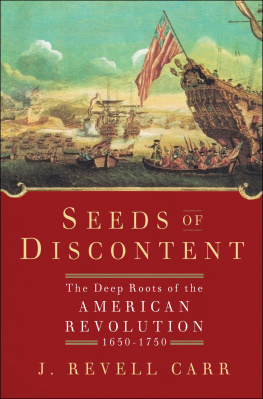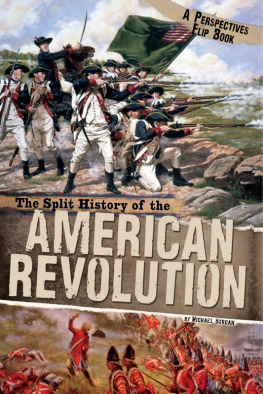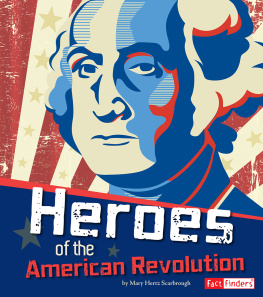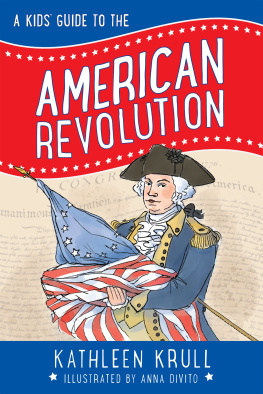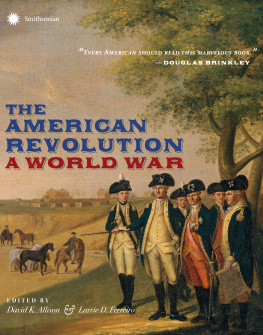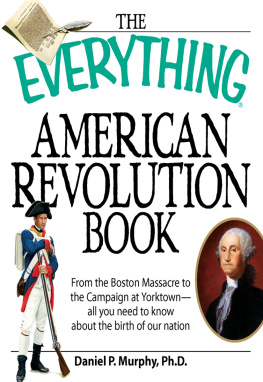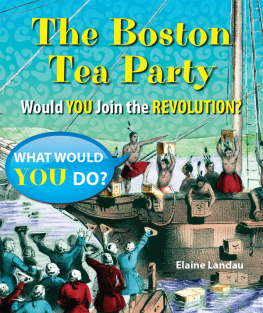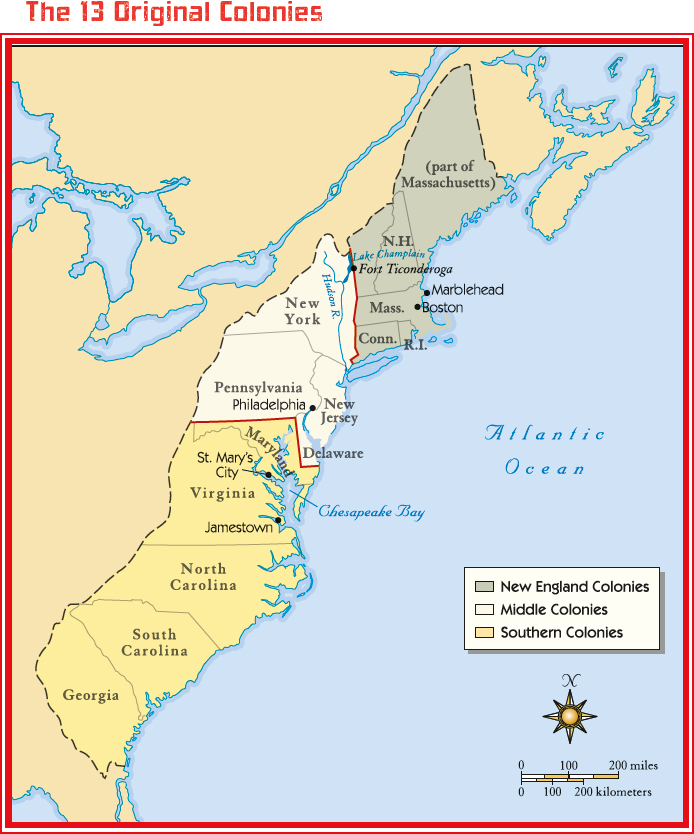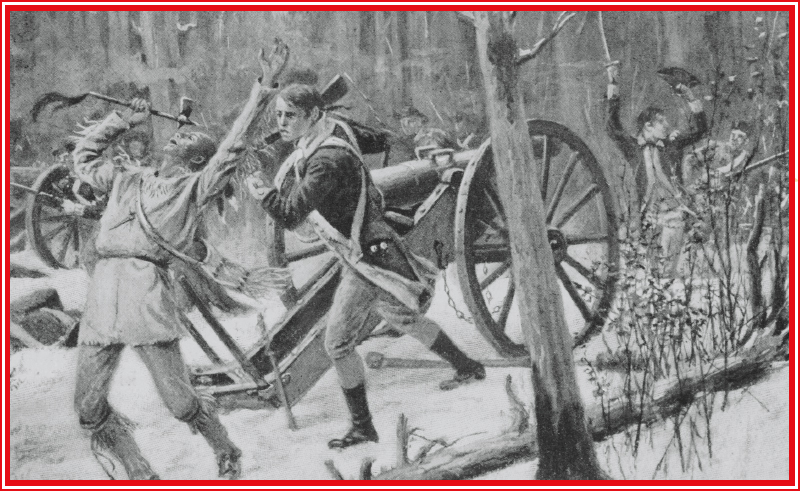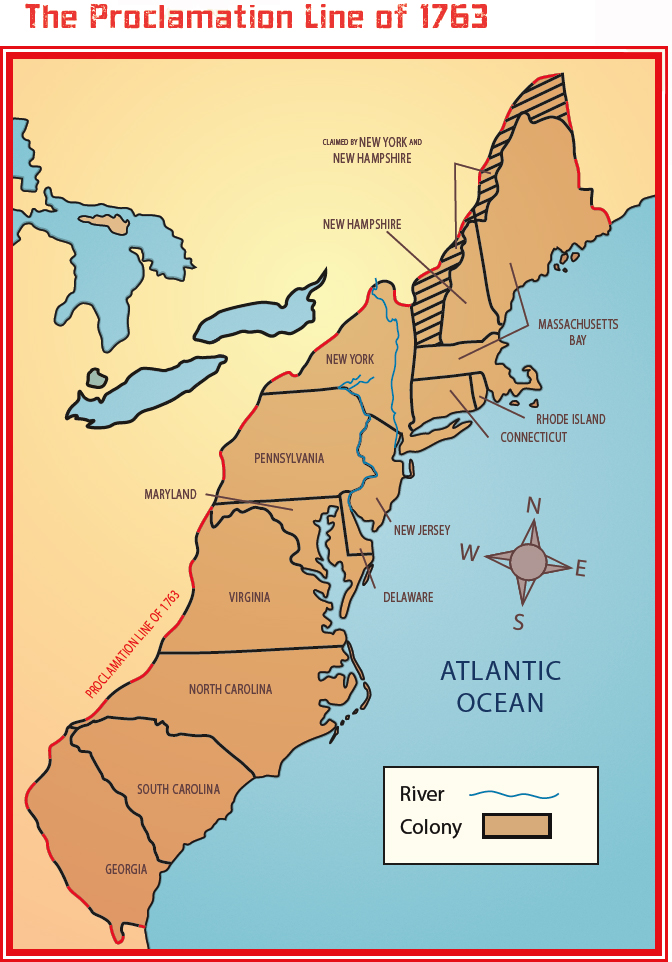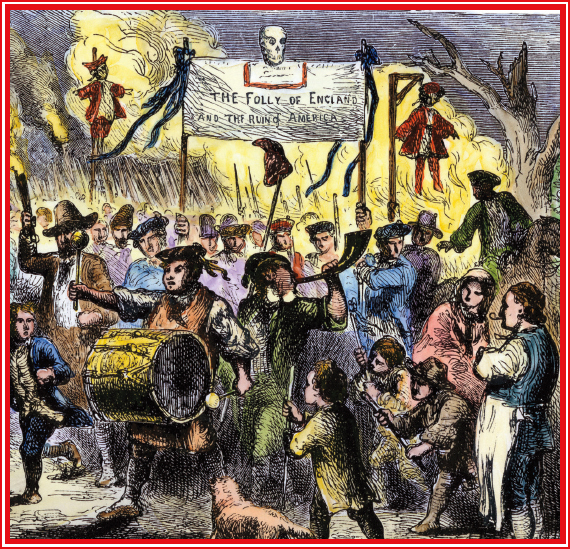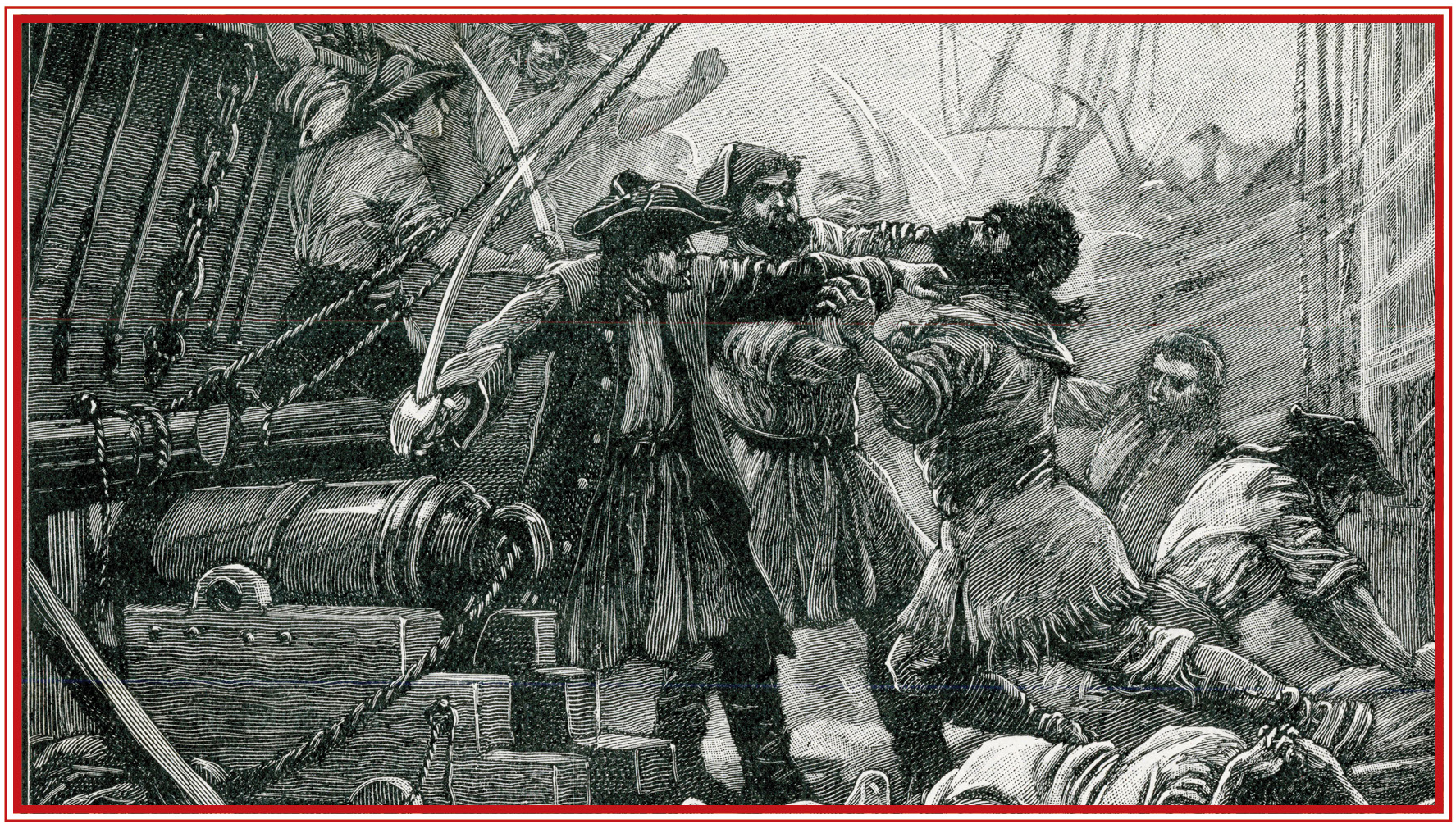The year 1763 brought big changes to America. British troops and American Indiantribes had just ended a war with the French. Frances defeat gave Great Britain controlof land east of the Mississippi River. The British also earned territories in Indiaand the Caribbean.
However, the end of the war was the beginning of a new problem. Great Britain ruled13 colonies in America. The colonies had thrived for 100 years and were growing.Colonists who lived there wanted to expand west. But Britain was overwhelmed withthe reality of controlling that much space.
British began passing new laws to control the territories. The colonistsfelt the laws took away their rights. Angry colonists banded together to voice theirconcerns. British officials thought the colonists were unreasonable. Neither sidecould agree on what to do. Small problems grew into big ones. By April 1775, tensionsbetween the two sides were at their highest. These disagreements ignited the AmericanRevolution.
The 13 colonies were divided into the New England, Middle, and Southern colonies.
CHAPTER 2
The First Offenses
Two early events shaped the colonists growing frustrations toward Great Britain.Both events involved Great Britains control over the colonies. The colonists beganto wonder whether members of Parliament had their best interests at heart.
The French and Indian War (17561763)
European countries had been exploring America since the 1500s. The French lived andtraded with the American Indians. The British built colonies along the Atlantic coast.Both countries wanted to control the Ohio River Valley. Settling near the river wouldmake travel and trade easy.
The two countries had fought over North America before. But this would be a decidingbattle. The war lasted for more than seven years. Eventually Great Britain, withthe help of its colonists, won. But the war had caused tension between Britain andthe colonists.
Colonists wanted to fight for their home country. They asked for their own army.But their request was denied. Instead British troops were sent to the colonies. TheBritish officers demanded that colonists supply food and housing for their soldiers.
In Europe, the French and Indian War was called the Seven Years War.
Colonists dressed for battle were often turned away. Eventually they were allowedto fight, but they were often looked down upon by British officers as inferior fighters.Without their help, Great Britain might not have been victorious.
The war had been expensive. Great Britain was left with large . To pay thesebills, the government decided to raise taxes on everything, including goods sentto the colonies. Some of the taxes restricted the colonists everyday lives. Othertaxes were costly or forced the colonists to rely on Great Britain for goods. Thecolonists felt the taxes were unfair and did not want to pay them.
debt : money that a person owes
The Proclamation of 1763
By winning the war, the British gained Frances territory in America. Many AmericanIndians who had fought for France lived on that land. The Indians worried that theywould be punished for siding with France. Colonists and Indians had clashed before.And as colonists began moving west, Indians found it difficult to maintain theirway of life.
To ease the tension between the Indians and colonists, Great Britain drew a boundaryline. The boundary was called the Proclamation Line. The colonists were supposedto live east of this line. Land to the west was reserved for the American Indians.
Parliament hoped the line would limit the colonists to the coast. If the colonistsmoved too far inland, they might start making or growing their own goods. Then theywould stop trading with Great Britain. Or colonists might start trading with othercountries. British leaders believed limiting trade with other countries was one wayto keep the colonists under control.
| FAST FACTS | The Proclamation also created four new colonies. These colonies were Grenada, Quebec,East Florida, and West Florida. |
The Grenada colony was part of the Caribbean islands (not shown).
The colonists were disappointed and angry about the boundary. They had hoped to settleon the newly-gained territory. They also felt that, since they helped win the war,they should be able to enjoy the rewards. It was just the first of many criticismsthe colonists would have against Great Britain.
CHAPTER 3
Unfair Laws
Relations between the colonists and Great Britain continued to decline after a seriesof laws and taxes were passed. Men who lived across the ocean wrote the laws forthe colonies. These laws affected all aspects of the colonists lives. The colonistspaid British taxes but had no say in the government. Angry colonists began demanding:
Some riots grew out of control as thousands of angry colonists marched together.
No taxation without representation!
The Sugar Act (1764)
In an effort to pay war debts, Great Britains Parliament passed the Sugar Act. Thisact actually reduced an existing tax on sugar and molasses by half. It was hopedthat lowering the tax would encourage the colonists to pay the fee.
Before 1764 many merchants .
After being caught, smugglers were often captured by force.

